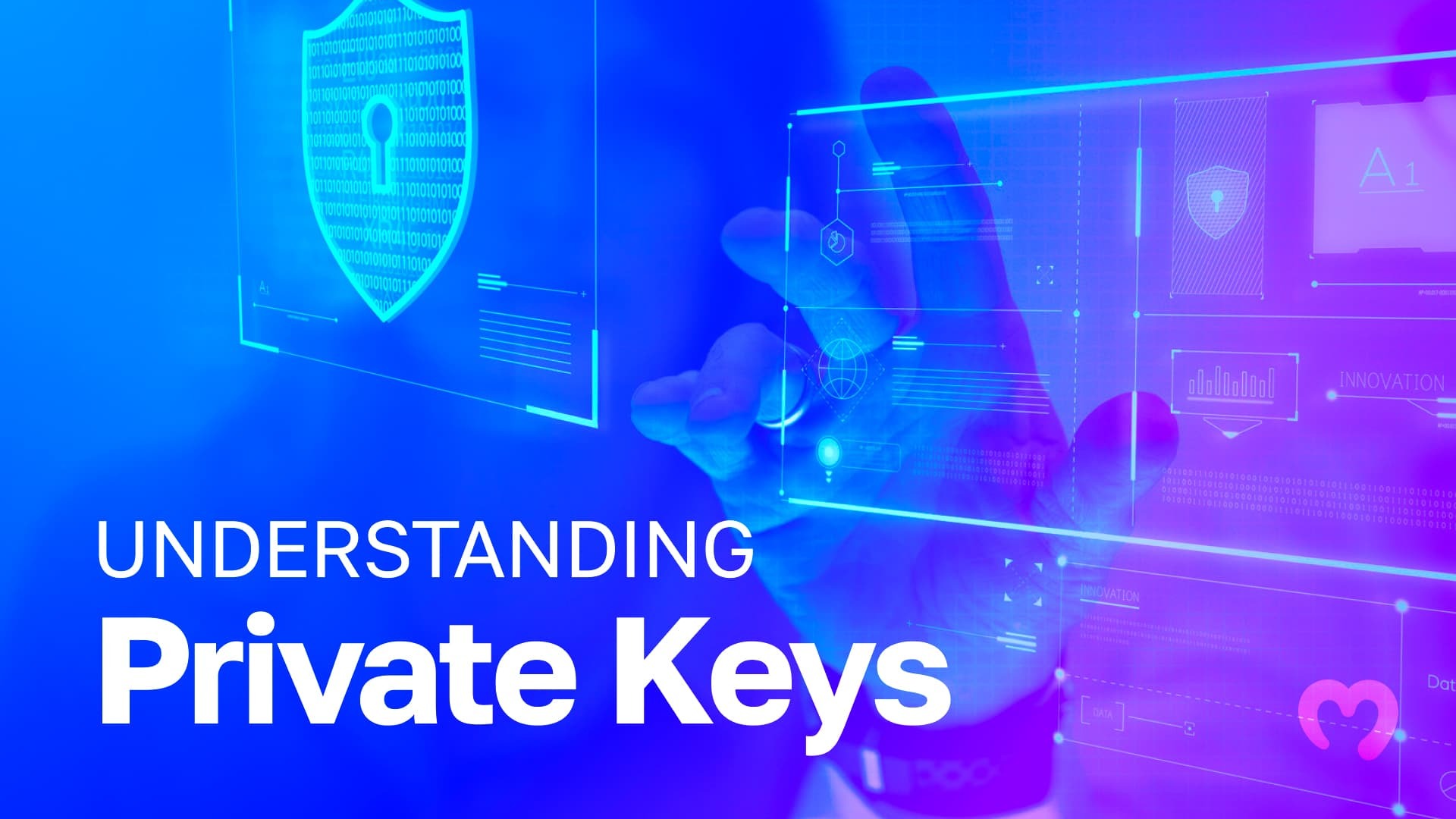What is a private key? In its raw form, it’s a randomly-generated 256-digit alphanumeric string of characters that operates similarly to a password. But because of its complexity, it’s impractical to transact with it directly. That’s the job of the crypto wallet, which we’ll look at later.
So, a private key is a secret number used in cryptography. But in the case of cryptocurrencies, it’s used for signing transactions and proving ownership of a blockchain address. More importantly, the possessor of this key demonstrates ownership. If this sounds too technical, for now, understand that a private key is a secure code that gives owners access to their tokens when needed.
What Is a Public Key?
A public key is fundamentally different from a private one. As its name suggests, it’s okay to display it publicly. That’s because it’s where others can send you their cryptocurrency. Furthermore, your public address on the blockchain gets created by hashing your public key.
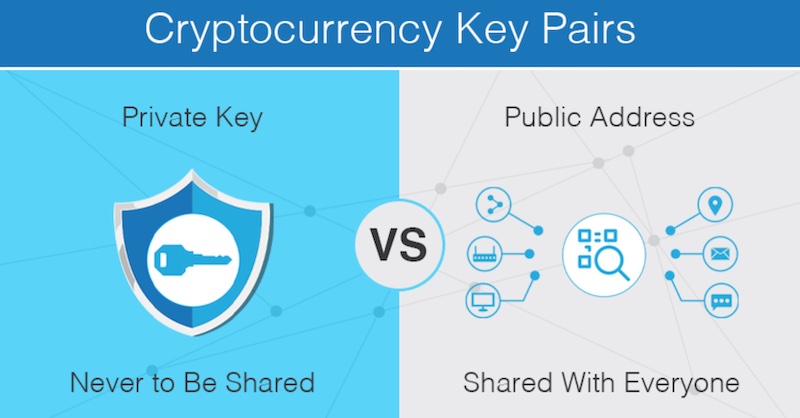
A public address is like having an email address where people can send you correspondence. You want people to be able to contact you, so you put it out there. To avoid spam, you may not want to go completely public with it. But you’ll give your email to people with whom you wish to correspond. Likewise, in crypto, you don’t need to broadcast your public address to the world – only to those you transact with.
As the bear market rolls on, parallelling the worsening US economy, knowing how to invest during a crypto bear market is essential. Further, understanding crypto crashes is critical for predicting future market moves.
How Private Keys and Public Keys Work Together
Private and public keys work together via a complicated algorithm. With it, the public key gets created through the private key. Furthermore, a similar algorithm uses the public key to create a receiving address. This public address acts like a mailbox, but only the private key can open it.
For example, a postal carrier (or any passerby) can drop letters into the mailbox. But, only the person with the unique key can open it and retrieve the mail inside. Therefore, the mailbox owner must keep the key safe so no one can break into the box.

What Is a Private Key? The Home Address Analogy
Another way to look at this operation is the home address analogy. For example, you can give out your home address to another person. But that doesn’t mean they can walk inside your house. Unless you give them your private house key, they will have to wait for you to unlock the door.
Likewise, in crypto, you can give another user your public address. But just because they know where you live on the blockchain doesn’t mean they can waltz in and take your crypto. They’d need the private key for that. Furthermore, people can deposit crypto to any public address they choose. You might have noticed when random crypto projects deposit tokens into Vitalik Buterin’s (Ethereum co-founder) public address to get publicity. But even though a user can receive token deposits to their address, they can’t withdraw tokens without access to the unique private key. Thus, private keys represent the last stage of ownership and control of cryptocurrency. That is why people need to store them safely.
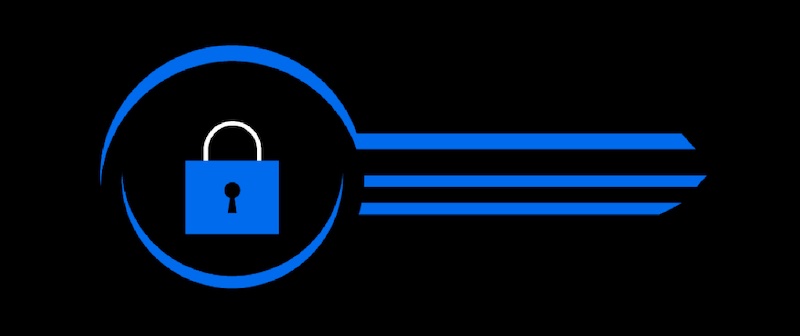
What Is a Crypto Wallet?
People often ask what a private key is and if it’s the same as a crypto wallet. The answer is “no.” But, a user’s public and private keys reside in the wallet. Because what you need is a way of using your private key seamlessly without exposing it, and a crypto wallet takes care of this for you.
A crypto wallet is a third-party service that lets you store your cryptocurrency, like having a personal bank. It also allows you to send and receive tokens and view your balances. Further, these wallets ensure that you have secure access to your funds. Digital keys (public and private) control the movement of cryptocurrency. Therefore, a crypto wallet consists of public and private keys. Moreover, there are different kinds of crypto wallets available. There are cold storage wallets, hot wallets, non-custodial wallets, etc. The type of wallet you choose will depend on how often you trade crypto and your security requirements. But whichever it is, a common feature they share is their ability to house crypto keys.
Once a user initiates a transaction, the wallet processes the transaction with the private key. Further, it creates a digital signature to do so. This process maintains a secure receiving and withdrawal system, with the wallet generating a valid signature for transactions.
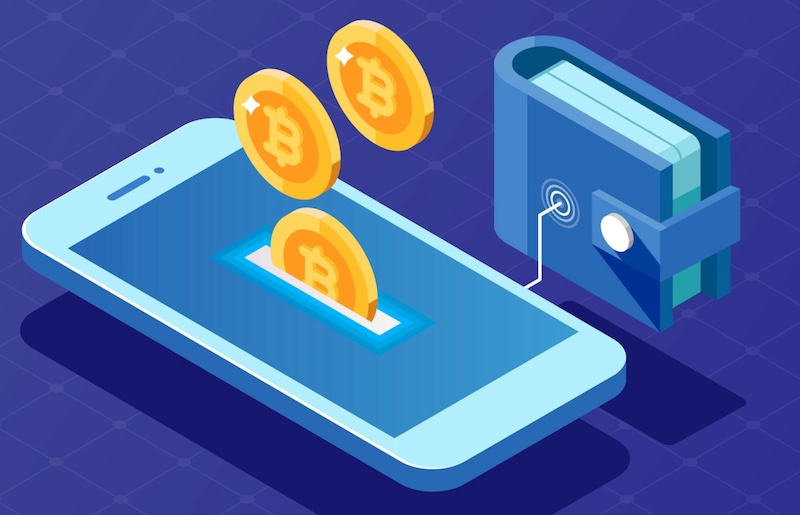
Private Keys and Seed Phrases
Another question is, “what is a private key?”. Another is, “is it the same as a seed phrase (or recovery phrase)?”. Again the answer is “no”. While private keys are crucial to keeping cryptocurrency transactions safe, you don’t have to memorize 256 characters or keep them handy at all times to transact on the blockchain. That’s the role of crypto wallets.
Moreover, your crypto wallet doesn’t actually store your crypto. Your coins reside on the blockchain. So, your wallet’s job is to secure your private keys to grant you access to your crypto. Further, once you begin using your wallet, it will generate a 24-word recovery phrase or “seed phrase”. (It can also be ten or 18 words).
Again, like the private key, you don’t need to memorize the seed phrase for transactions. But it’s best to handwrite it on paper and store it in a fireproof, secure location. If you’d like to go the “extra mile”, consider having your private key stamped on a piece of metal and store it in a safe. Offline storage keeps hackers away. But if anyone finds your seed phrase, they can access your wallet.
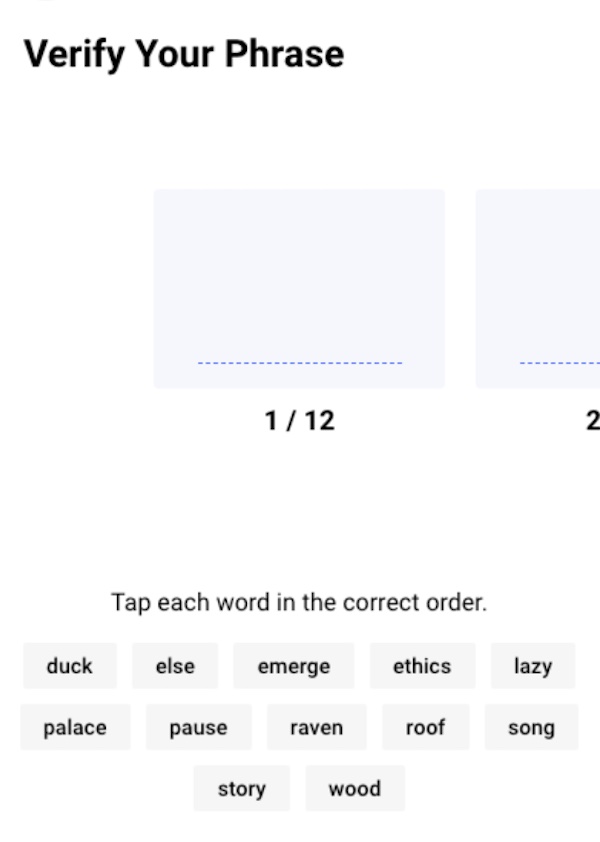
So, a recovery phrase and a private key are similar in that they both play a pivotal role in crypto security and provide a vector for accessing your tokens. However, they go about it in different ways.
More About Recovery Phrases
So, now that you understand what a private key is, you’re probably wondering why you need a seed phrase. First, you will generate a recovery phrase each time you create a new wallet. Second, it comes in handy should you ever lose your crypto wallet. With a recovery phrase, you can regain access to your funds by buying another wallet.
Private keys and recovery phrases are different, yet they are parts of the same whole. A seed phrase is a differently formatted version of the private key. Yet, a private key only relates to a single blockchain address. Furthermore, a seed phrase references all the addresses that your private key secures in your wallet. These addresses can be numerous depending on the varieties of cryptocurrencies you buy.
To sum up, your private keys reside inside your wallet, and your seed phrase is a standing record of your private keys. Thankfully, you don’t have to type in 24 words each time you transact on the blockchain. But you’ll need to store it safely and keep it handy when updating your wallet.
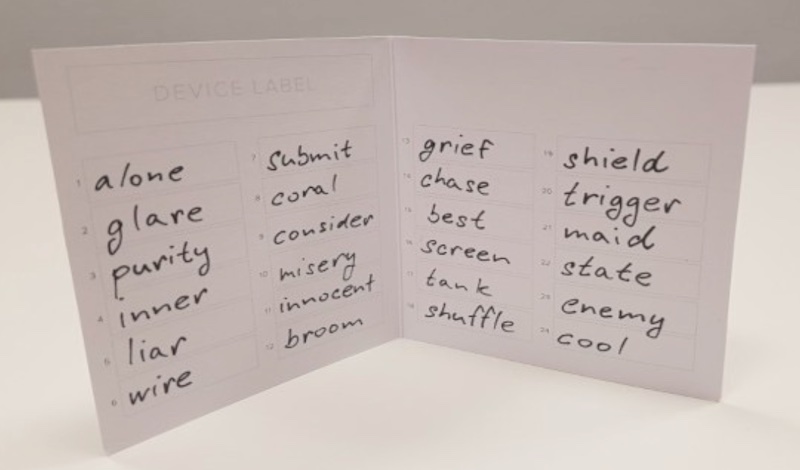
Sequence of Events
So, what is a private key, and how does it interact with digital wallets and seed phrases? Here is a simplified sequence of events:
1. Your wallet generates private and public key pairs whenever you create a blockchain address. More importantly, it keeps them in a safe place.
2. Your crypto wallet also generates a 24-word seed phrase that you must safely store.
3. You won’t need your seed phrase that often. But keep it handy when updating your wallet, and make sure you can find it should you lose your wallet.
4. Use your passcode to log into your wallet to check balances or execute transactions.
Sending Crypto with a Digital Wallet
Sending cryptocurrencies is a pretty straightforward process. Even though each wallet may have slightly different variations, the steps will be something like the following:
1. Make sure there is enough crypto in your wallet to cover the amount you send.
2. Select the correct cryptocurrency, as there will be multiple options if you own various coins.
3. Check the recipient’s public address twice before inputting it into the “Recipient” field. You could lose your crypto forever if you enter an incorrect address!
4. Double check you’re sending the correct amount.
5. Click “Send”.
Using a Digital Wallet to Receive Crypto
Your wallet will require you to follow these steps (or a similar version) to receive crypto:
1. Select “Receive” in your crypto wallet to access your public key.
2. Make sure your address matches the crypto you’re receiving. For example, your public address for receiving Bitcoin will be different than your address for receiving Ethereum.
3. Give your public address to the sender.
4. Check your wallet to verify the tokens have arrived.
There are other blockchains besides Bitcoin and Ethereum, and Solana is one of the more popular ones. Our recent blog articles cover the top five Solana projects, why developers build on Solana, and Rust & Solana.
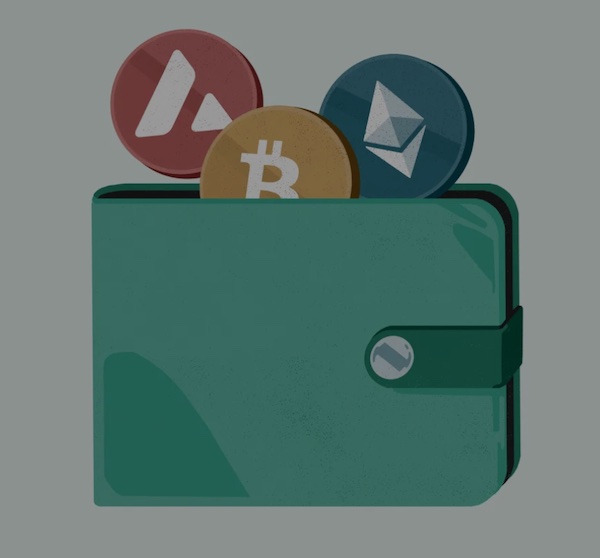
Which Crypto Wallet Works Best?
With all the choices of digital wallets, the ideal type will accommodate the level of security a user seeks versus convenience. In other words, the perfect private key storage depends on how a person uses crypto.
Active traders won’t want to move all their funds to a cold-storage wallet at the end of each trading day due to the hassles involved. Sending tokens back and forth from the exchange to their wallet increases the chance of a typing error and inadvertently sending coins to the wrong recipient address. In addition, transaction fees accrue each time a trader sends tokens. Therefore, active traders typically leave their funds on an exchange until they’re done trading for a while.
On the other hand, those who trade primarily on a decentralized exchange like Uniswap are more likely to leave their crypto on a wallet like MetaMask. It functions as a browser extension or mobile app and offers quick access from a trader’s device.
For those employing a buy-and-hold strategy, a cold storage wallet (or hardware wallet) like Trezor or Ledger (that looks like a USB device) is a good option. In sum, the best alternative for storing private keys will depend on your current needs, balanced with demands for convenience vs security.

The Risk of Loss
Sensational hacker stories abound in the cryptoverse. However, it would help if you also took measures against simple loss. If you forget your wallet’s password, it’s okay if you have your seed phrase handy. However, if you misplace your seed phrase, all bets are off.
Losing access to your funds is just as painful as getting hacked. A high-profile example of this happened to Stefan Thomas, CEO of a micropayment streaming service and early Bitcoin adopter. He lost access to his USB hard drive containing the digital wallet with his Bitcoin. The value of his holdings fluctuates because of price swings, but at one point rose to $321 million.
A $321 million loss is a tough pill to swallow! That’s why you should guard against the risk of accidentally misplacing a seed phrase. Never typing them on your laptop is great. A handwritten set of 24-words is great; it’s offline, awesome, and will keep hackers from getting them. However, it does no good if you forget where you put them. In fact, security is such an issue in Germany that safeguarding customers’ private keys is a regulated financial service.
Have you ever wanted to create an NFT, NFT marketplace, or just dive into non-fungible token programming? Check out our NFT coding tutorials and start building today!
Summary – What Is a Private Key?
So, what is a private key? You should know enough by now to answer anyone who asks that question. But, for most people, studying private keys is not solely an academic exercise. The main takeaway from this article is security.
Share your public blockchain address with those who need it. But don’t share your private keys, recovery phrases, etc. If someone steals your cryptocurrency, it’s not like you can call the “Fraud Prevention” unit at your bank to cover your losses. So, take precautions. Write down your phrase on a piece of paper and store it in a fireproof safe. Also, go the extra mile by having your phrase stamped on a piece of metal, especially if you have significant amounts of crypto you cannot afford to lose!
Do you want to become a blockchain expert? Learning about private keys is just the beginning. Enroll at Moralis Academy and get started on your learning adventure today!
